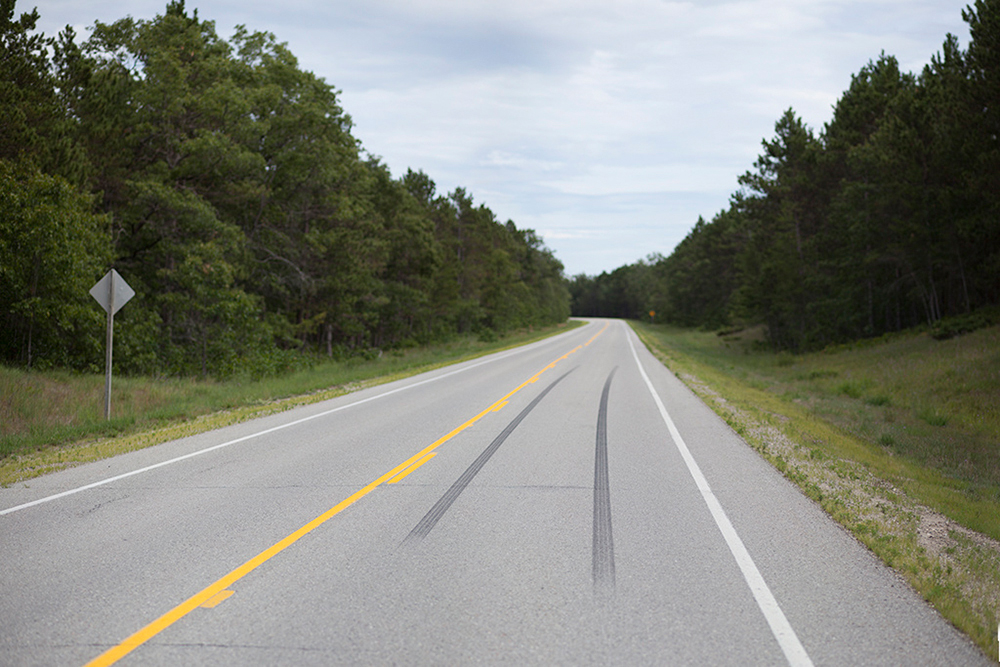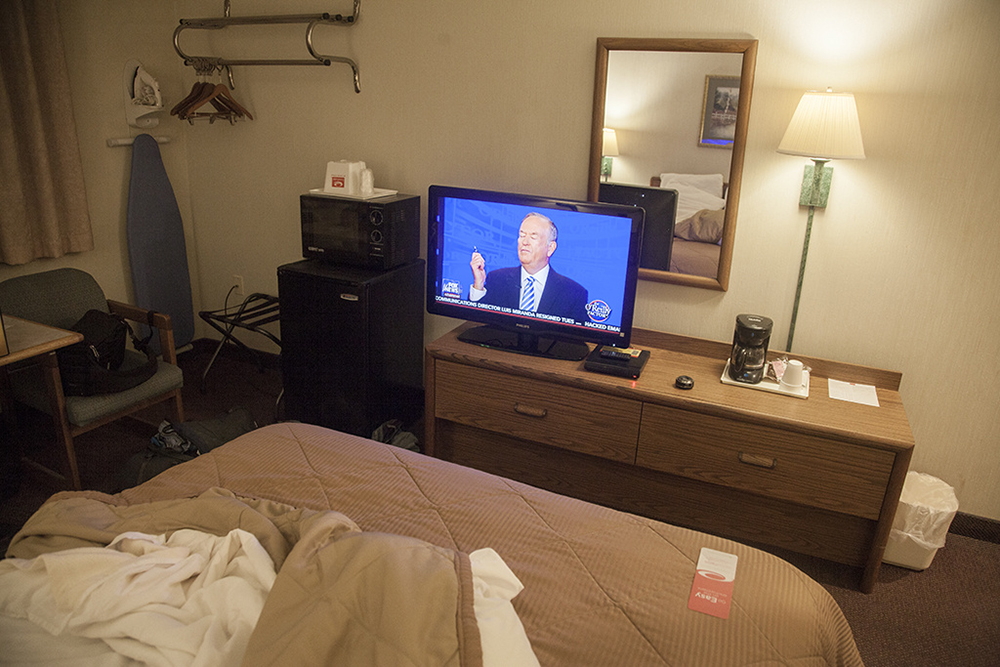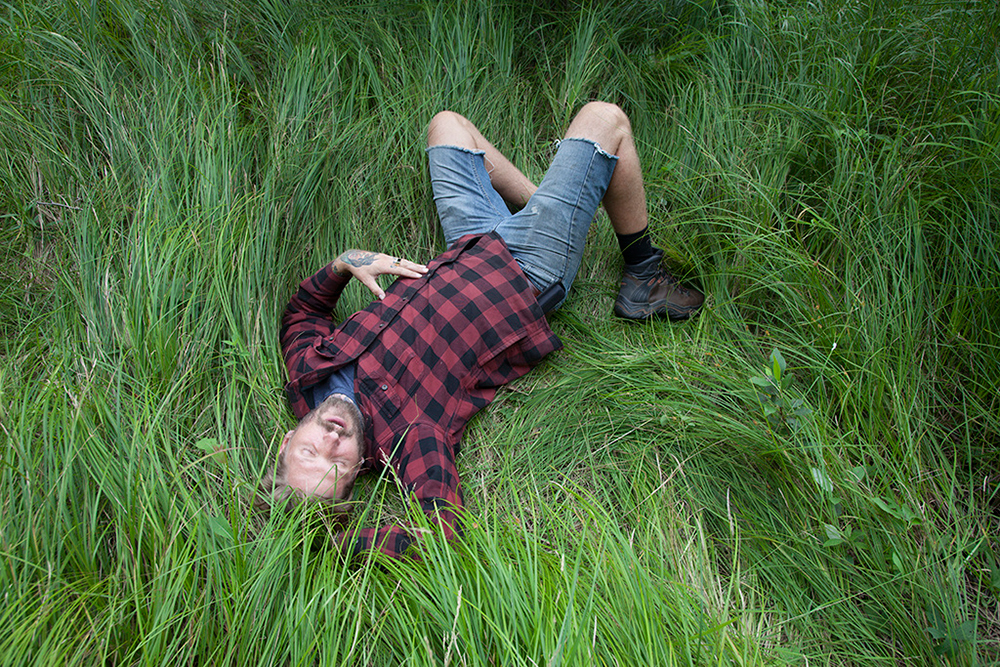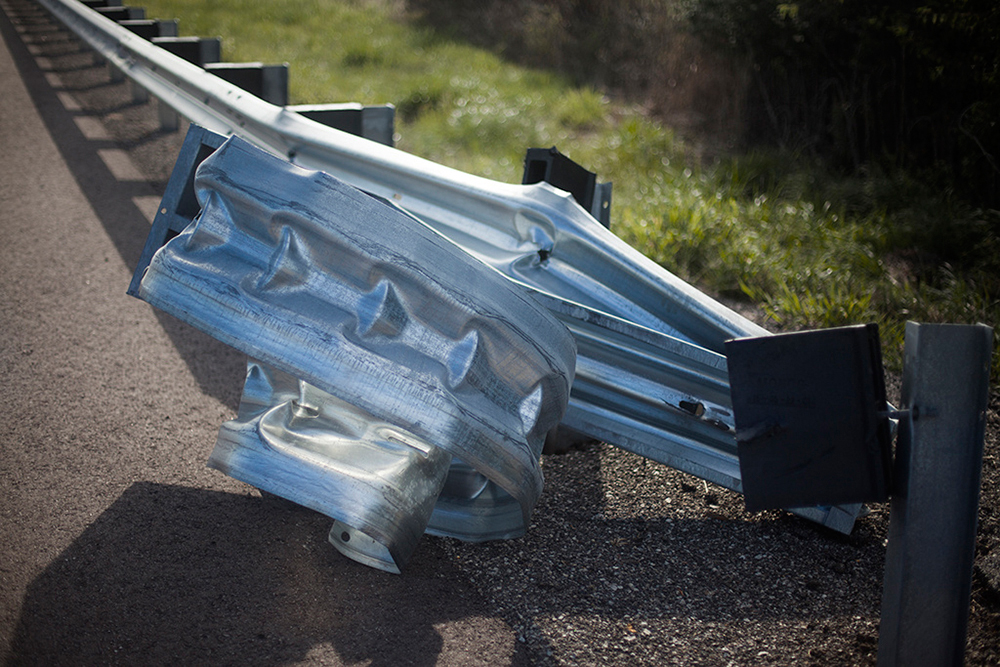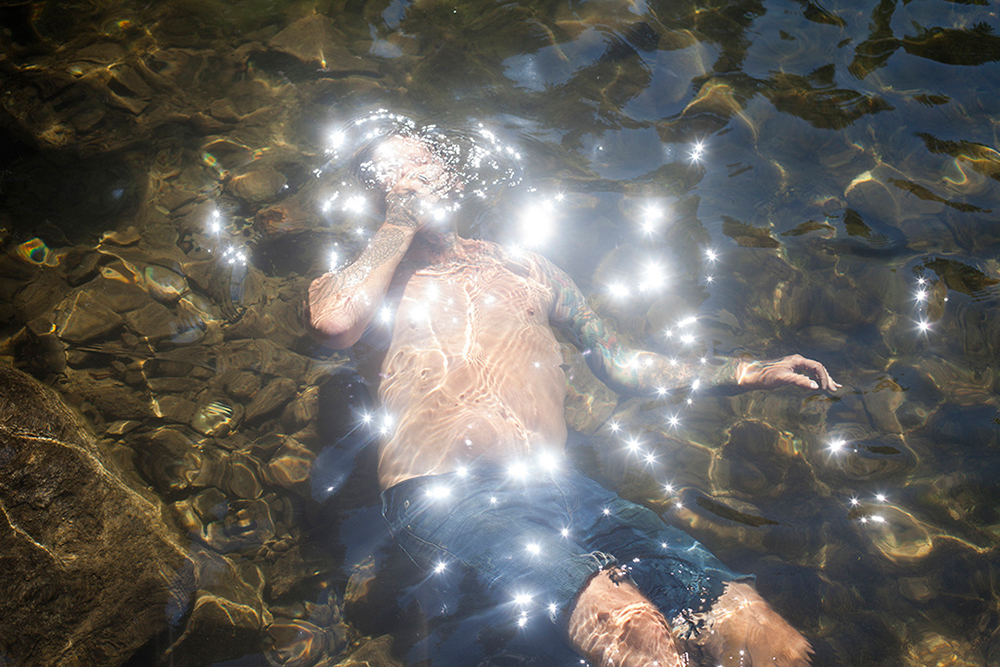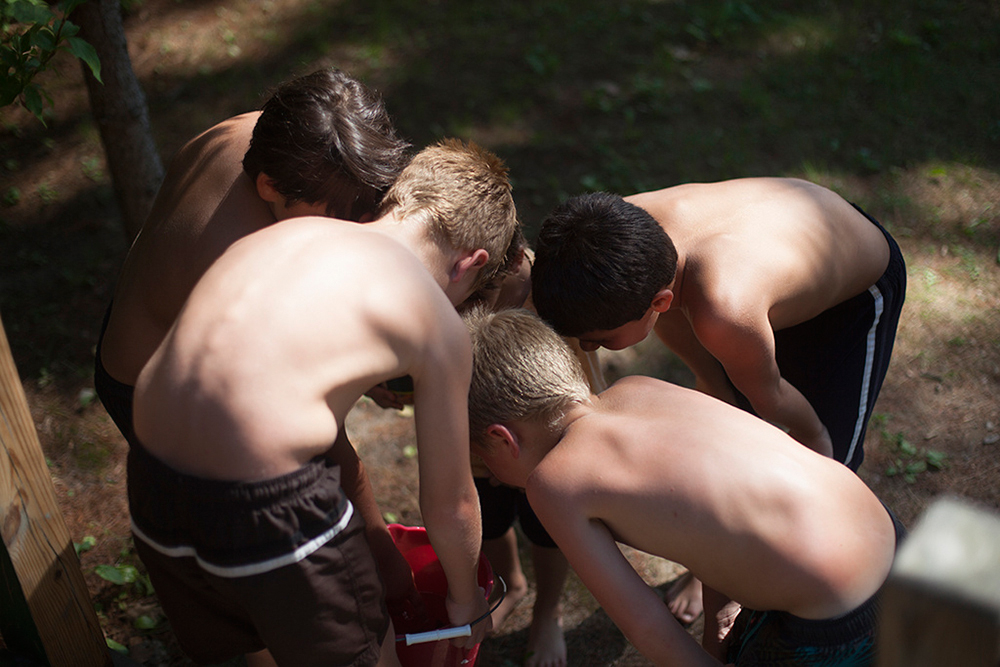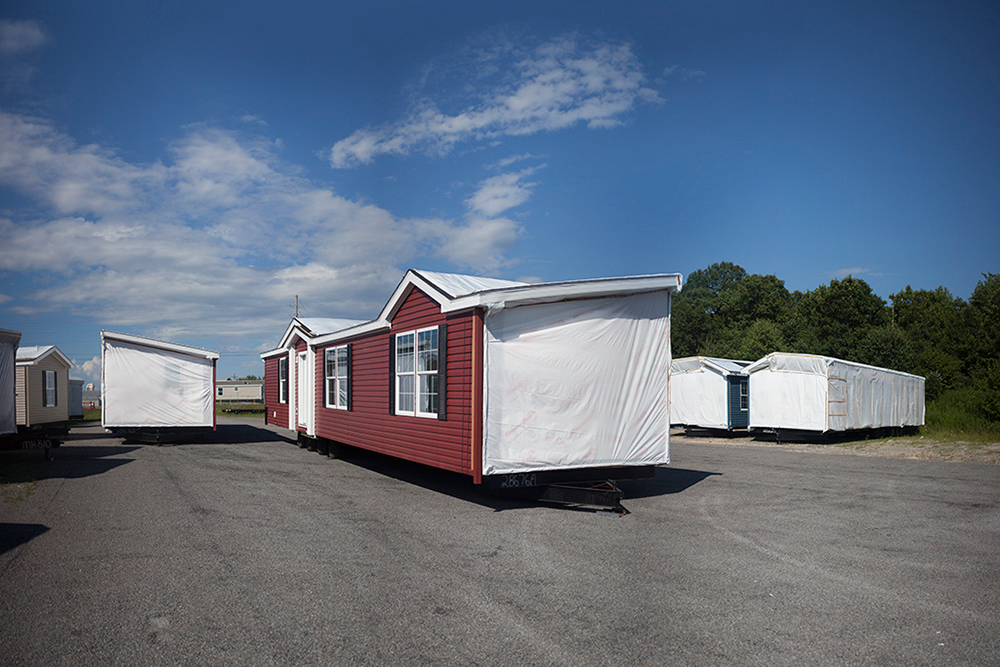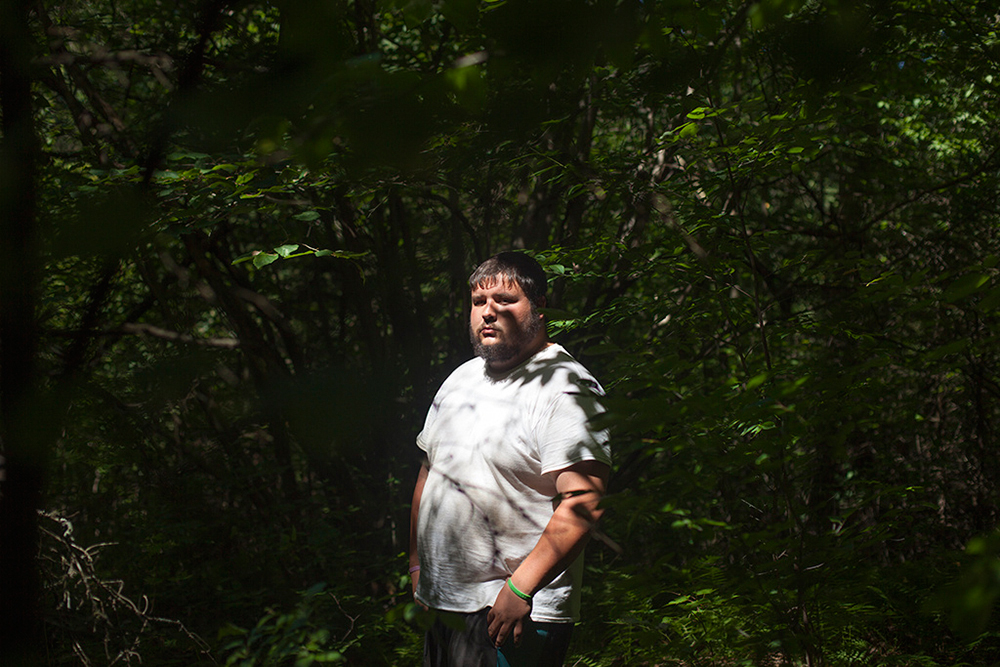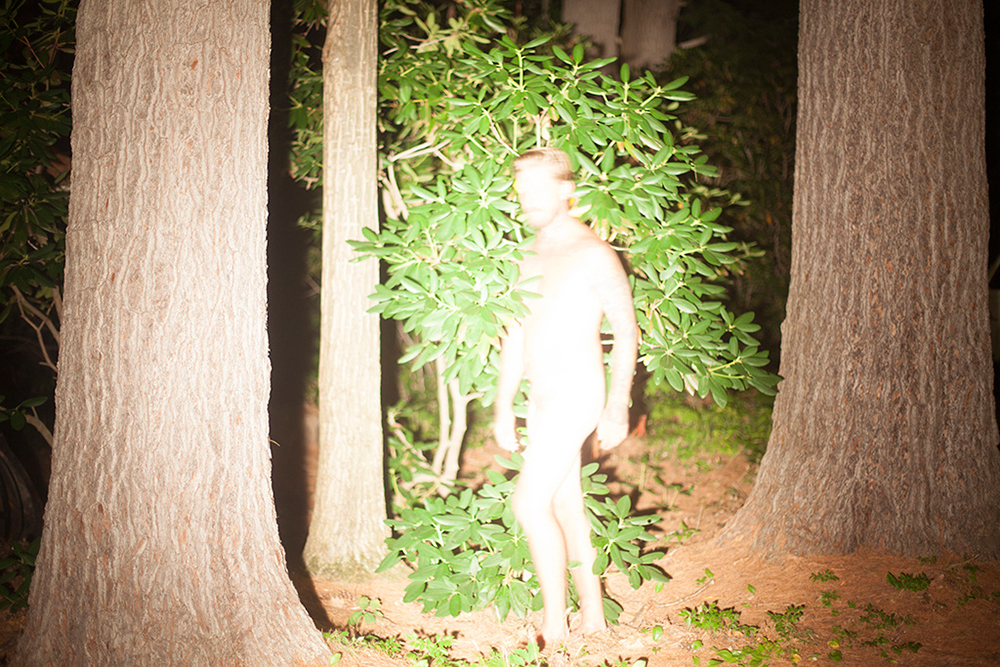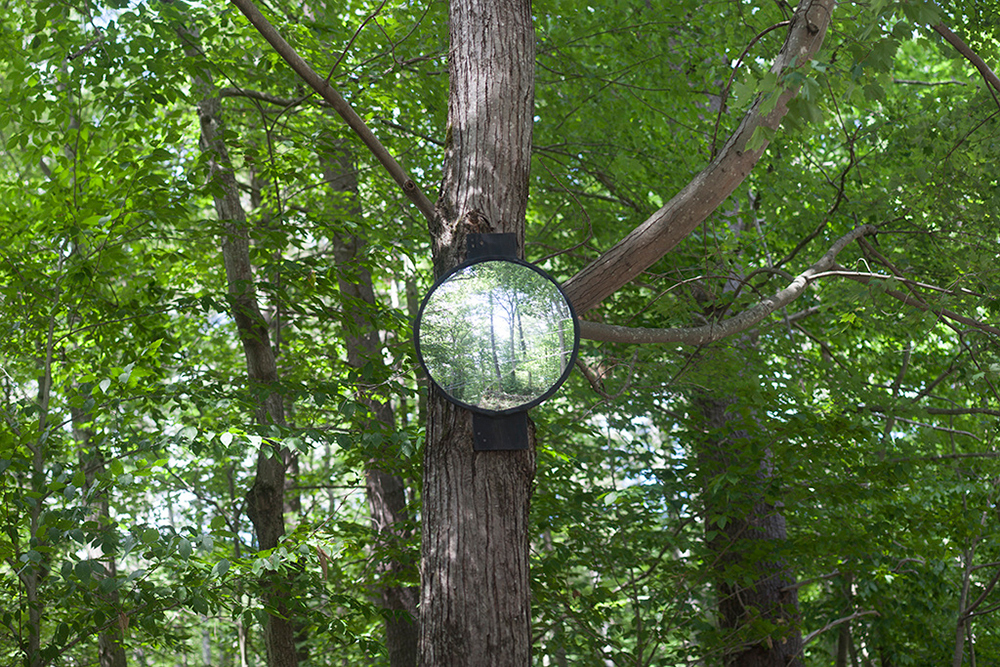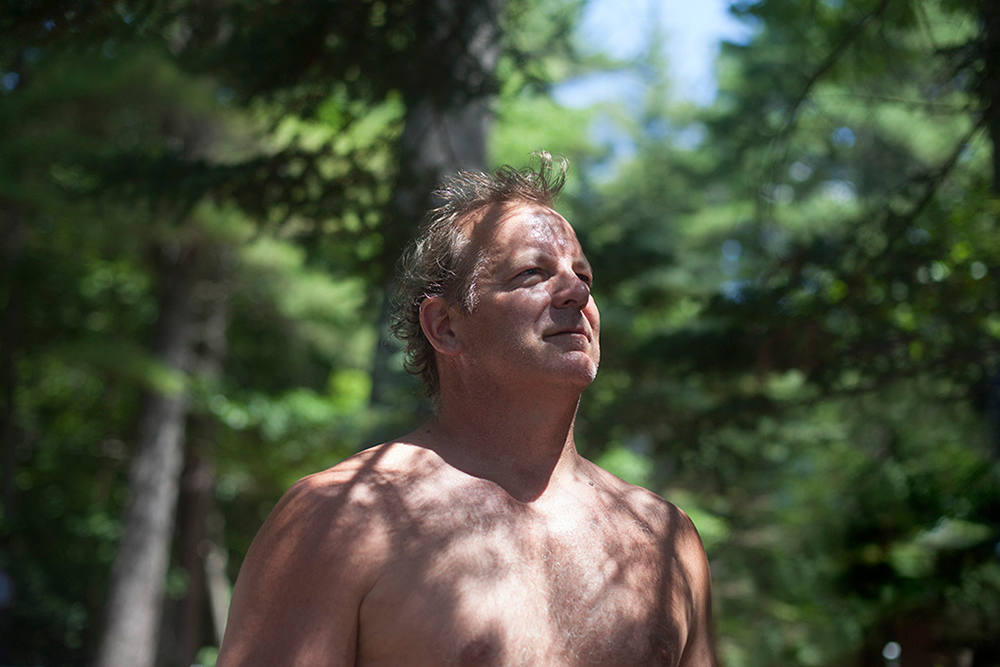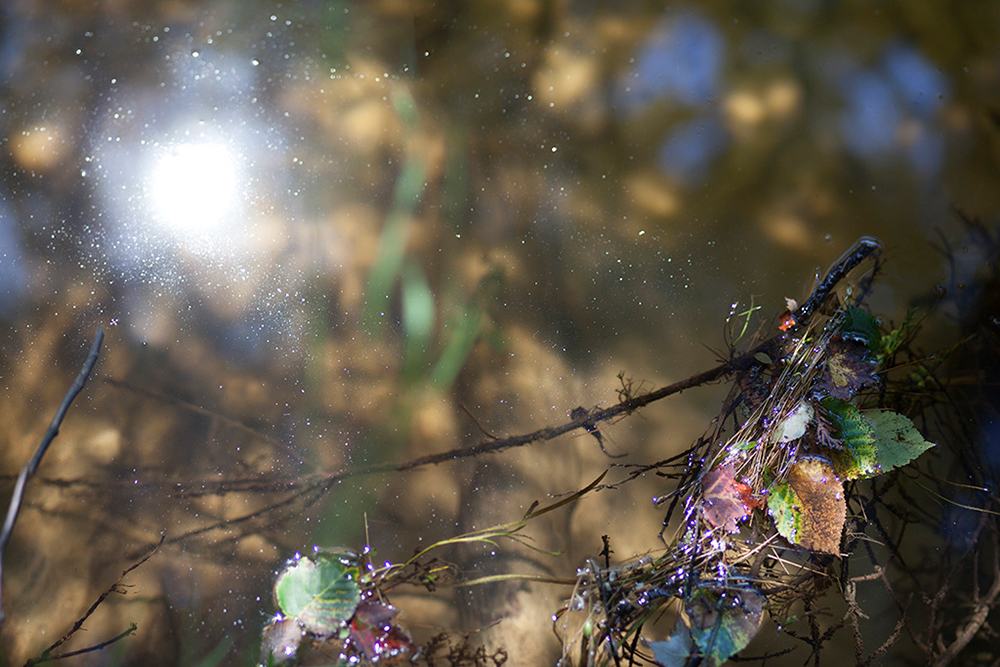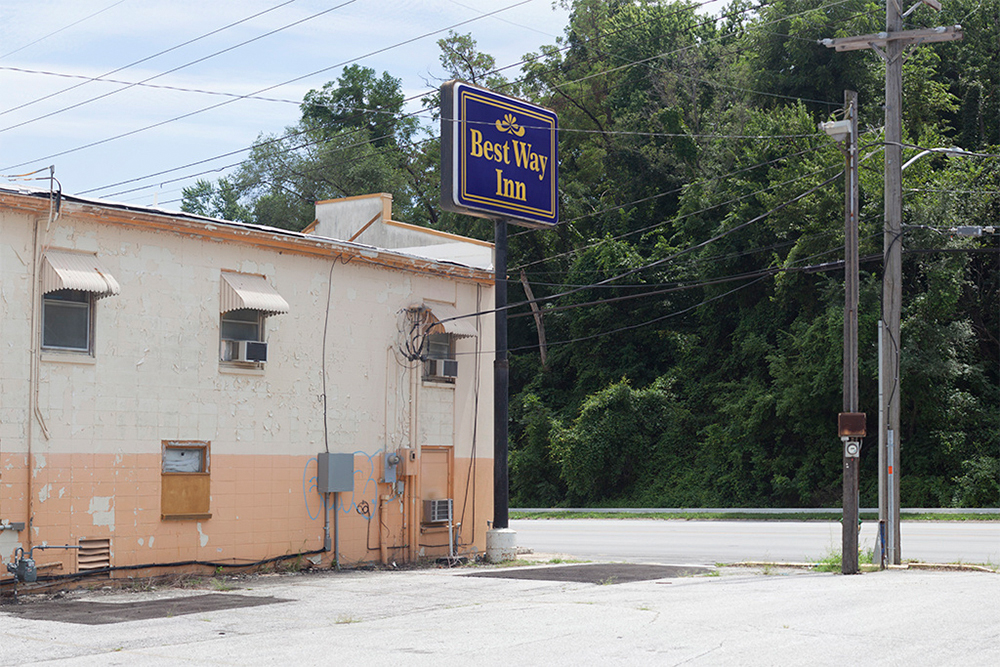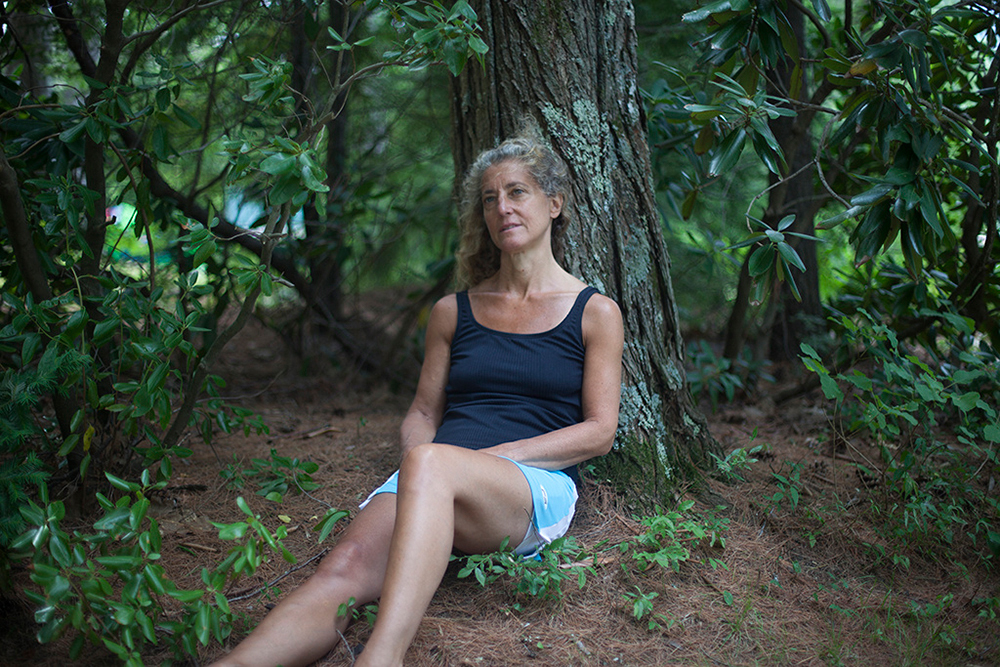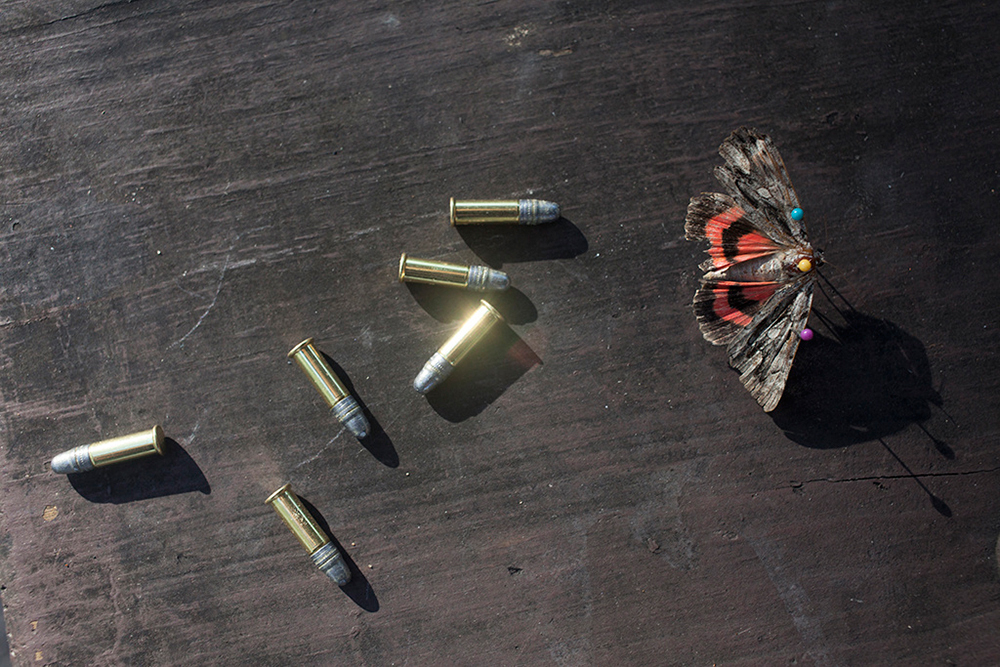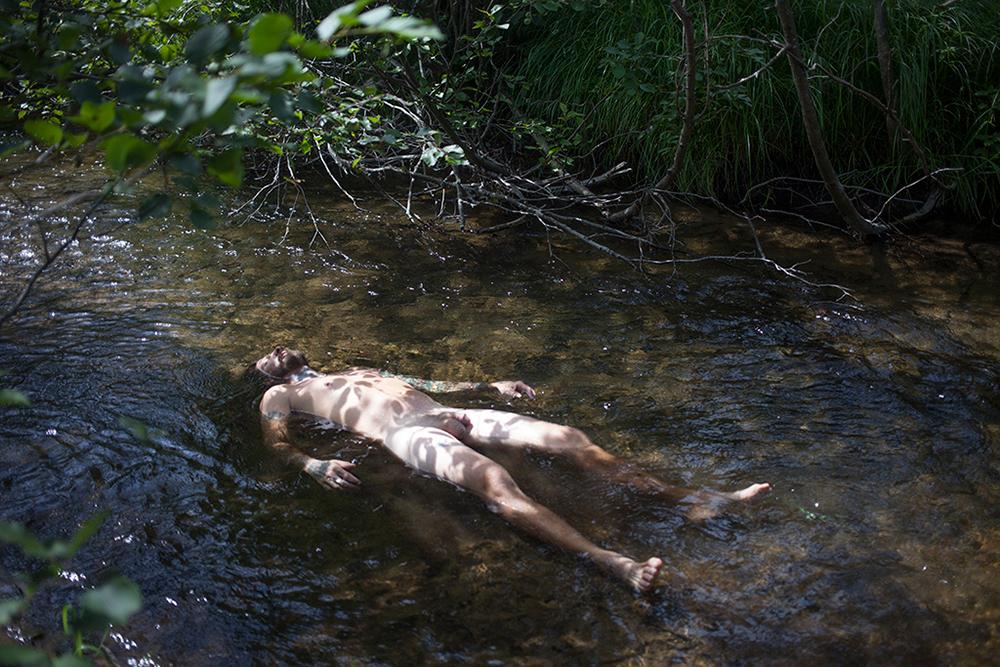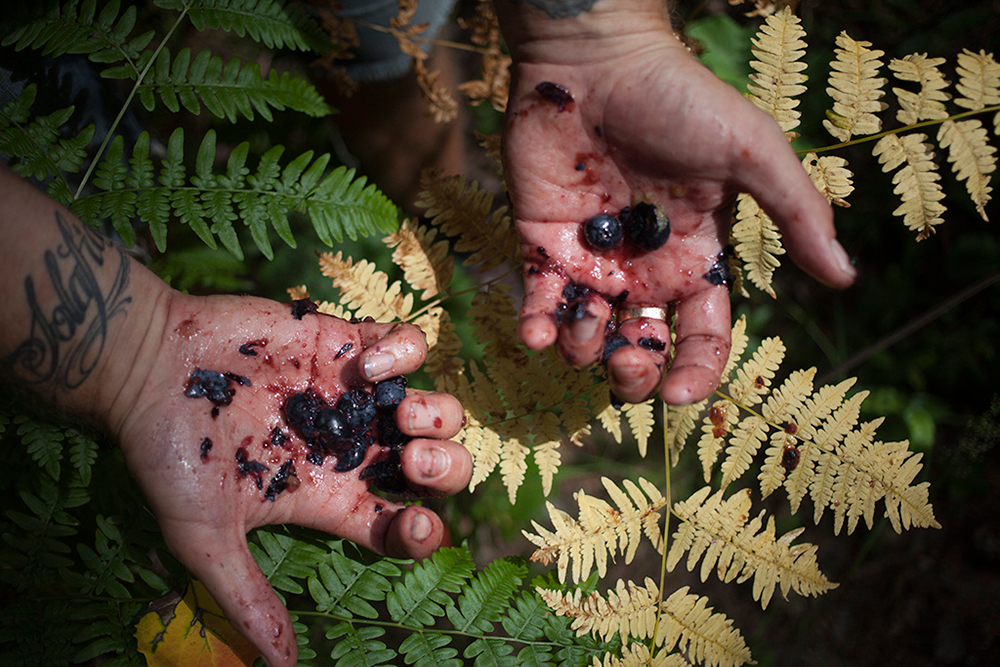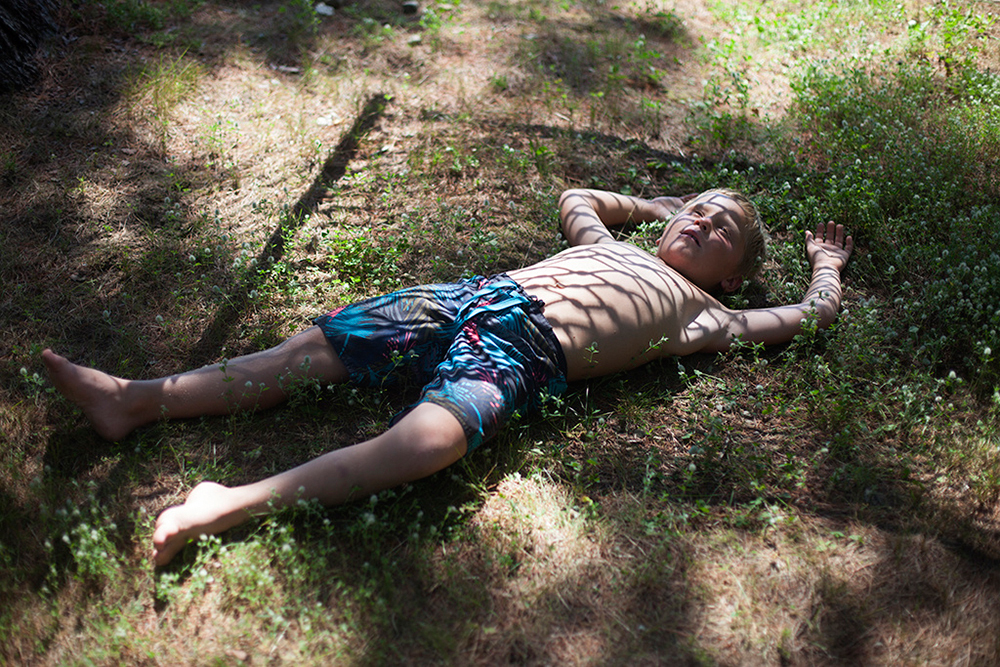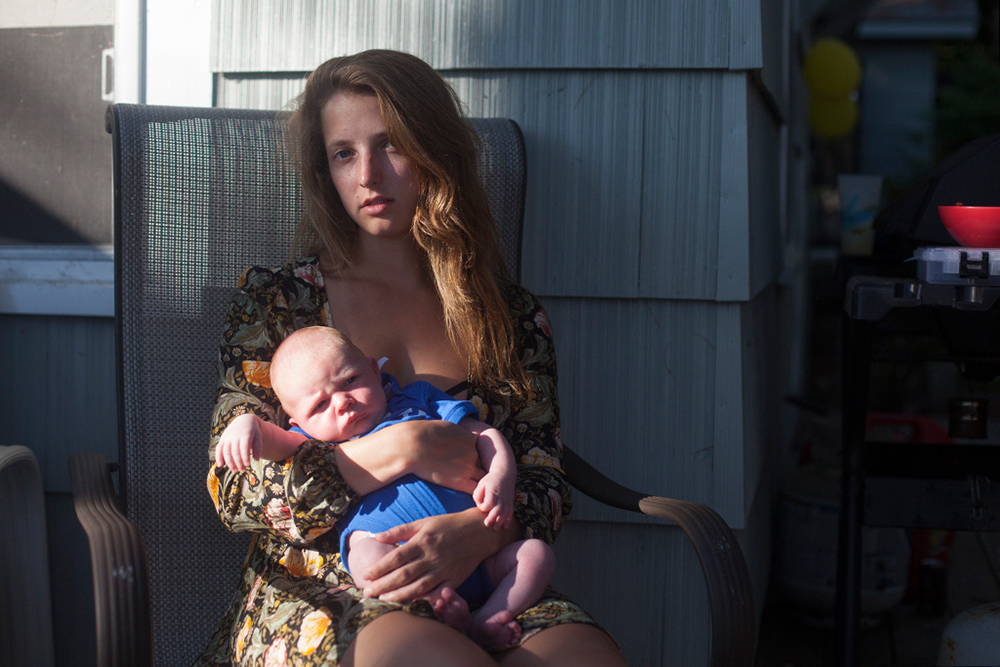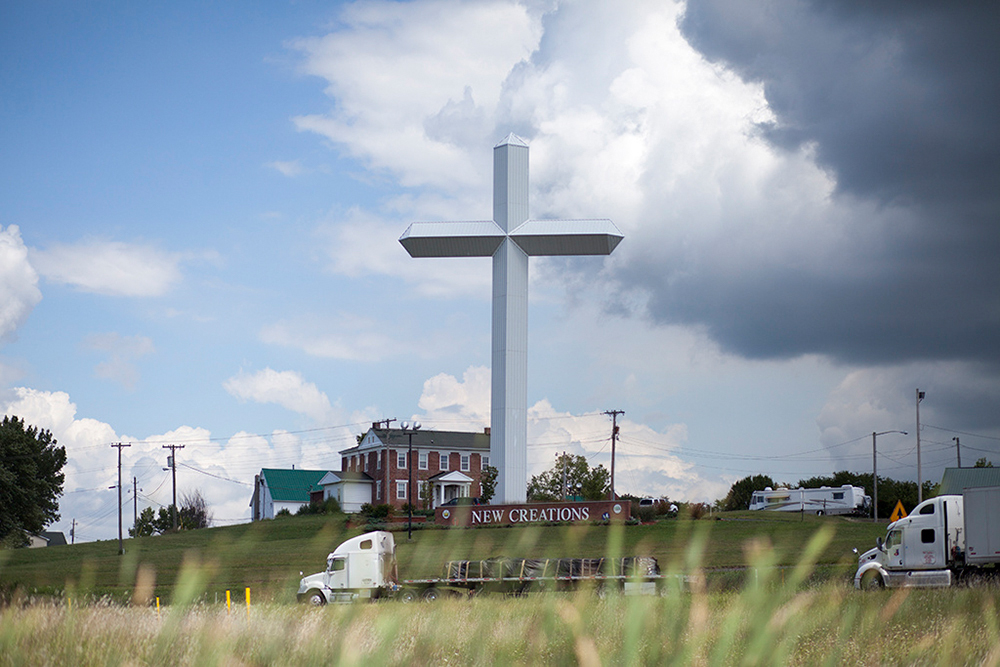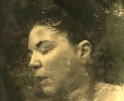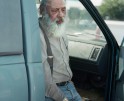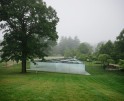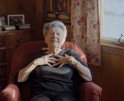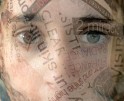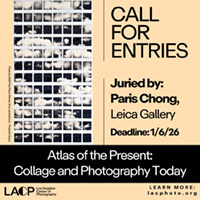Daniel W. Coburn: States Project: Kansas
Daniel W. Coburn has spent a significant portion of his life in Kansas, as a state that he has lived in since his youth and as a backdrop for his practice. Much of his work focuses on his family, the relationships that bind them, and the inherent flaws in these relationships. Kansas, though subsequent, becomes critical, as this location anchors everything together. Even with a strong connection to the state, Daniel finds conflict in the culture, noting that, “Kansas is situated in the bible belt, at the confluence of conservative politics, culture, anti-culture, and agriculture. It’s a place that I love, but it’s often necessary for me to escape.” We begin this installment of The States Project with Daniel doing just this, escaping into the wilderness, escaping from Kansas. Before Daniel takes over for the rest of the week, we share photographs and an essay from his body of work, The Tonic of Wildness. Take some time to immerse yourselves in his words, as we all run away together.
Daniel W. Coburn lives and works in Lawrence, Kansas. His work and research investigate the family photo album employed as one component of a visual infrastructure that supports the flawed ideology of the American Dream. Selections from his body of work have been featured in exhibitions at the Los Angeles Center for Digital Art and the Chelsea Museum of Art in New York. Coburn’s prints are held in collections at the Museum of Contemporary Photography (Chicago), the University of New Mexico Art Museum, the Mulvane Art Museum, the Albrecht-Kemper Museum of Art, and the Mariana Kistler-Beach Museum of Art. He has been invited as a guest lecturer at national and international photography events including the International Festival of Photography in Belo Horizonte, Brazil; the Ballarat International Foto Biennale in Victoria, Australia; and the Helsinki Photo-Media Conference. His first artist’s monograph, The Hereditary Estate, was published by Kehrer Verlag in 2015. Daniel’s work has been published widely, most recently appearing in the International New York Times. Coburn received his MFA with distinction from the University of New Mexico in 2013. He is currently an Assistant Professor of Photo Media at the University of Kansas.

The Tonic of Wildness
It’s Wednesday and traffic is thin on a two-lane highway that slithers through the Finger Lakes region of central New York. I worked up the courage, came to a stop, and quickly hopped out of my truck to photograph a small trailer home nestled in a wooded valley about sixty yards down an embankment. I made a few quick snaps with my digital camera and turned back in a sprint when my heart sank deep into the pit of my stomach. Twisting back, I jerked my head to the left, back to the right, and then left again, convinced that my eyes and mind were somehow playing tricks. The keys were still sweaty in my palm. My brand new escape vehicle—the prized and pampered chariot that should carry me to freedom—vanished from the shoulder, only to be swallowed by the darkness of brush, forest and flora at the bottom of a steep trench. This event wrote both the preface and the epilogue for the story of my escape into the wilds.
Two weeks before, teetering on the precipice of a psychological break, and three days after the circus that was the Republican National Convention of 2016, I carefully packed my things and drove north. This wasn’t a spontaneous event. On the contrary, it was a very calculated one. In early July I traded my small, fuel-efficient hatchback for a four-wheel-drive pickup. I spent the next three weeks making lists, conducting research, and gathering provisions, all in preparation to live on the road.
This act of preparation temporarily postponed feelings of unrest. As many Americans, I had experienced the cathartic effect of consumption: collecting objects was an opportunity to gain control in a world spiraling into chaos.
The constant barrage of political rants, memes, updates, and diatribes that flooded social media feeds and occupied banners scrolling the bottom of television screens spawned racing thoughts and reoccurring fits of anxiety. Regardless of the outcome, the presidential race had already exposed frightening symptoms of a chronically diseased society. Several unnecessary acts of violence carried out by the authorities against a black minority, followed by a response of mass shooting, followed by an unfathomable attack on a Bastille Day celebration made it feel as if the thin veneer of civilization had been punctured and could collapse at any moment. The noise had become deafening.
I left on a Sunday. An unbearable wave of heat and humidity held the middle of the United States in a chokehold. I live in Kansas. As the barometer reading rises, the heat simmers a vile, bitter stew of agriculture, anti-culture, evangelical rhetoric, and conservative politics. I made one photograph before my departure: dried scraps of vegetables and fruit on my stained cutting board. Basked in the light of golden hour, it seemed appropriate: the beautiful, but deceased remnants of a once plentiful bounty.
I drove away hoping to escape the convection-oven of heat, to find solace in nature, and to chart an escape route. My plan: to camp for three weeks in national forests along the border to Canada.
I detest guns, but I bought one before I left. It was a tortuous experience, really. Deciding which one to buy, pretending to be practical about how I might use it, and fearing the response of authorities that might find it stowed in the cab of my truck, were all major concerns. I settled on a twenty-two caliber rifle. Many gun enthusiasts will tell you that this is a child’s gun. However, it was something I could use to hunt small game, and if needed, I could use it as a weapon for self-defense. The rifle became the tell-tale heart of my journey because I was constantly aware of its presence—a presence that informed nearly every decision I made along the way.
I did not find peace on the road.
Abandoning social media provided some relief, but billboards and other roadside distractions became harbingers of an uncertain and frightening, future. The highway morphed into a giant scroll bar revealing only madness. My conscience flooded with feelings of self-doubt. I began to question every decision that I had made prior to the mile marker just over the horizon.
For two days the GPS on my phone steered me northward, but I also purchased detailed paper maps of every state and national forest along the way. Online maps, e-books, digital photographs had all been exciting and seductive technological wonders but require a device for access. These devices were marketed as a means to liberate and democratize, but they are distributed and controlled by the same corporations that heavily influence American politics. Nope. This was my attempt to get back to basics.
I had planned to stay at dispersed campsites, ones that are often primitive and isolated, but free of charge.
Finally, a sign would indicate that I was entering Hiawatha National Forest in the upper peninsula of Michigan, but I was arriving later than expected. The sun was descending rapidly in the western sky and my thoughts raced, swimming in a vertigo of confusion and road fatigue. I attempted to make sense of the nonsensical numbers that labeled Forest Service roads. Just before a wave of distress sent me scurrying back to find the comfort of a hotel, I was overcome simultaneously by relief and disappointment. A wooden sign pointed me into a campsite—but the site was already occupied by two obscene recreational vehicles. After setting up camp I introduced myself to the two men situated around a campfire. We found ourselves shouting as our conversation was obliterated by the roar of the gasoline generator which powered their rooftop air conditioners.
I spent two days at that campsite and visited with the men and their wives. Each night my fellow campers would retire early, leaving the fire to watch highlights of the Democratic National Convention on television in the comfort of their RV. Like a voyeur, I watched them through their windows. My stomach churned and I became hypnotized by the patterns of light that, changed shape over the small flat screen inside.
We had one thing in common: desire had forced our attempt to find redemption in the wildness. During my time here I became acutely aware of our misunderstanding of nature, our desire to experience the romantic version constructed in movies, photographs and literature. I learned that our experience of the wilds must be heavily mediated to achieve the opportunity that we imagine. But if we only achieve what we imagine, nothing is gained or lost.
Nature is dangerous, and one cannot have a truly redemptive experience by refusing to dance with its severity.
Not far away I found the perfect campsite elevated over the Little Indian River at a curve in one of its sharp meanders. There was no sight or sign of another human, and I felt comfortable fishing and bathing in the river. There was something about swimming that provided relief. I felt a sense of renewal as I was consumed, immersed, and enveloped, by these wild waters. After all, it was a baptism of sorts. I felt as if I had finally arrived. It was in this calm that time seemed to grind down slowly. I began to notice the remnants of Fall floating in eddies on the river. The reflections in the water reminded me of miniature galaxies, similar to the brilliant array of stars I had viewed in the inky night sky only hours before.
I thought for certain that this is what I was searching for.
But the pressure I felt to document my experience became overwhelming. My absurd compulsion to take back evidence, to prove to the world that I was healed by nature, and to show that I had basked in all of it’s glory, weighed heavily on my mind. Wine drunk in the woods I toiled—and ultimately lamented—my failure to photograph what felt like a transformative experience. You can’t photograph what it feels like to have your first kiss. You can’t photograph what it’s like to be paralyzed by anxiety, and this similar effort was no exception to those rules.
It rained that night. I slept on a mattress just inches beneath the fiberglass top of my truck. Raindrops fell heavy on the roof, amplified, pounding like drums in a funeral procession, I lie sleepless in what I imagined could eventually become a sarcophagus.
There were daily, often hourly, reminders of my own mortality and the miniscule, insignificant role I played in this geography. I could easily be swallowed or trampled by something lurking out there in the woods or by the forest itself. I used my camera to collect evidence of those threats, but as many of photography’s greatest critics have pointed out the camera has the capacity to intervene, transform, alter, and sometimes murder.
The day of my arrival at Huron National Forest was a treacherous one. In desperate need of a bath I found an icy cold stream, only about a foot deep. I could have easily just lathered up, splashed around to get clean and hiked back to my campsite. But I thought that there might be a potential photograph, one inspired by the John Everett Millais rendering of Ophelia. Prone on my back in the frigid water, my body grew numb. As the midday sun penetrated the canopy above, light filtered through leaves like stained glass. My body adjusted slowly to the temperature. I floated, weightless, counting down from fifteen, allowing five extra seconds for the self-timer to release the shutter on my digital camera.
When I regained consciousness, half of my body still remained in the water, numb with a chill. I can’t say what happened in those moments before blackout, but I did manage to fall head first toward the bank. What initially seemed like a spiritual event, a physical and psychological meditation, quickly transformed into a near death experience. Perhaps they are the same? I don’t know, but the truth is that I was nearly consumed by the very thing I hoped could deliver redemption. Perhaps this is the only way a landscape can offer redemption for someone like me?
Driving from park to park was difficult. I decided to ignore the roadside propaganda. Instead I would seek out others that might be like me, also attempting to live a mobile lifestyle. I looked for them in the small towns where I stopped to buy gasoline, in seedy hotel parking lots, and riverside campgrounds.
In Allegheny National Forest I met three men. They described themselves as life long friends. One was a diesel mechanic, one worked on an oil rig, and the other had recently completed a degree in social work. To say that these men were resourceful is to say the least. Their campsite featured a makeshift shower, a trailer hitch toilet, an air compressor, and a pressurized beer bong. They were sweet guys, generous with their time. We cooked breakfast and they described small town life in Eastern Ohio. Camping—escaping to nature—was a tradition they had learned from their fathers. It was a masculine ritual. The wilderness was a place sanctioned by their forefathers, an appropriate venue for men to gather and communicate. However, the forest around them seemed nearly inconsequential as they rarely breached the perimeter of their tricked out campsite.
A few days later I began my drive to White Mountain National Forest in New Hampshire, where I joined my partner and her family on Lake Squam. Four boys between the ages of two and eleven had run of the property: fishing, swimming, and jumping from boulders into clear, pristine waters.
This all reminded me of my own boyhood of course, which was an age of conquering the natural world that surrounded me. But discovery is a violent act. I remember collecting insects and trapping small reptiles, confining them to mason jars, which would often become forgotten death traps. Those thoughtless deeds rarely resulted in consequence, even when under strict parental supervision. I couldn’t have predicted that one day the wildness might retaliate.
Once, when we were children, my brother and I became lost in the woods. Panting heavily, we tumbled down hillsides and scrambled through trees, not running in any given direction—only running—desperately hoping our feet would carry us back. I’m no religious man but my father always said that God looks after children and fools. My brother and I managed to find our way back safely before nightfall. Was it a great spirit? Or was it fate calling the shots? It’s a valid question. After all, I was still in the throes of my current adventure: a deliberate attempt to get lost.
Regardless of the answer—be it Divine intervention, or a date with destiny—I was about to be presented with one final test before my safe return from what, at times, felt like a fool’s errand.
After four days in New Hampshire I pointed my truck, back West, toward home. It was here, perched on a ribbon of asphalt, I found myself staring down into the woods. As a result of my negligence, my truck was abducted by the same wildness that had nearly claimed my life just a few days before. I didn’t think to make a photograph. Instead, I rapidly descended the steep bank, my feet being painfully driven into the narrow toes of my hiking boots with each stride. The truck was deep down there, threaded neatly between two birch trees. The red glow of taillights poked through from tall grass and bramble. The post of a wire fence had stopped the truck’s forward momentum, resulting in a sizable dent in the front bumper. I decided to pry my way into the driver’s side door, jammed the truck into four-wheel-drive, pulled it into reverse, and drove it back up onto the highway with only minor cosmetic damage.
I stayed in a hotel that night to collect my thoughts and lick my wounds. With some time to reflect, I concluded that it could have been much worse. It could have rolled into the highway, rolled over me, or into someone else.
Henry David Thoreau proclaimed that, “We need the tonic of wildness.” He believed that in our pursuit to “explore and learn all things, we require all things be mysterious and unexplorable.” I’ve come to learn that the word dangerous is a synonym for Thoreau’s thread adjectives. He said “we can never have enough nature,” but the word nature is an abstraction, a fantasy, an oversimplification. And even if physical boundaries do not prevent us from experiencing Thoreau’s version of nature, our contemporary psychological afflictions might.
My compulsion to busy myself as a photographer, using the camera as a shield, a tool to keep up with Jones’ distracts me from confronting issues of greater importance in my daily life. I used it as protection in the woods, to cope with my fears of the unknown. Perhaps the camera prevented me from drinking the tonic of wildness. I don’t know. But I do know one thing is for certain: these photographs describe my failure.
But, what better medium to describe a failure than the medium of photography? To unlock the full potential of photography one must submit—and confess—that every photograph is a failure, that the potency of a photograph lies not in what it depicts, but in what it can never reveal.
Our consumer culture has given us an inflated perception of the value of things. It seems a sense of fear and paranoia has festered into a widespread epidemic over the last century. How can we get more things? How can we protect our things? Who will come and steal our things once we have them? In most cases we imagine that it’s someone that looks and speaks differently than we do. As a consequence we tend to value our things over the well being of our neighbors.
It is these distorted values that drove me toward the wildness and it is also why I returned.
The most redemptive facet of my return to wildness was relearning how to work, understanding that when I woke in the morning there were chores to do and certain preparations that had to be made before I could have a meal, before I could drink a cup of coffee, or before I could enjoy a campfire. Basic hygiene was a chore, viral videos didn’t seem all that seductive anymore, and by the end of the day I was dreadfully tired. So perhaps the most valuable of my lessons learned in the wild was a new strategy for rearranging priorities. This is something most of us understand as necessity but have trouble implementing in our daily lives, unless we are forced to do so.
I know that it’s not time for a break. I don’t need to escape, I don’t need another beer, and I don’t deserve that extra scoop of double fudge ice cream. It’s simply not time to treat myself, and I’m not going to just relax.
I was weak when I left for the wildness.
I didn’t discover what I expected out there, but I did return a bit stronger than I was before. There is work to be done. It’s going to require me to stand up, become accountable, and continue to think critically—not only for my own well being—but for the sake of my neighbors as well.
Posts on Lenscratch may not be reproduced without the permission of the Lenscratch staff and the photographer.
Recommended
-
Marydorsey Wanless: The States Project: KansasOctober 30th, 2016
-
Adam Long: The States Project: KansasOctober 29th, 2016
-
Mike Sinclair: The States Project: KansasOctober 28th, 2016
-
Elise Kirk: The States Project: KansasOctober 27th, 2016
-
Morgan Ford Willingham: The States Project: KansasOctober 26th, 2016

